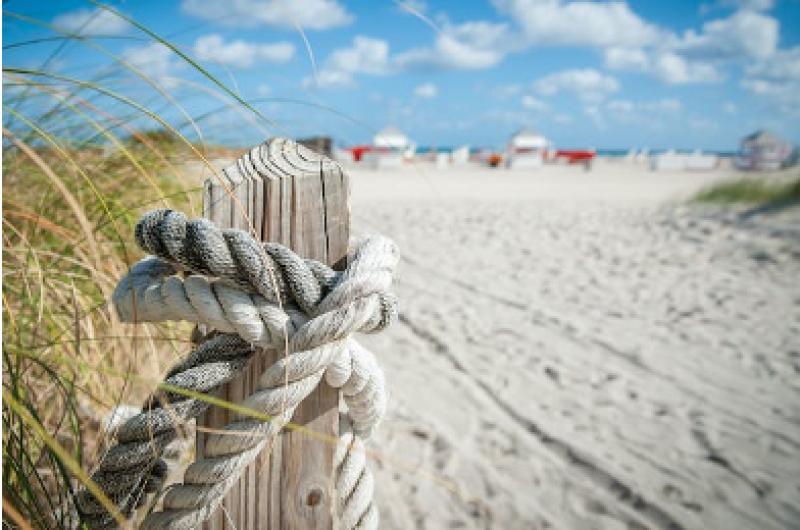Is a Beach House Right for You?

At this time of the year, it’s not hard to fantasize about owning a house on the beach somewhere warm. You could take your kids there for family vacations and rent it out when you’re not using it. Or, you could live there year-round, enjoying a laid-back lifestyle on the coast.
But beach houses have their downsides as well as their benefits. For one thing, owning a beach house tends to be more expensive than owning a house further inland. You have to contend with ocean storms and the damage that sea winds and rain can do to a coastal house. Renting your beach house out may not be a guaranteed source of income, either. Here are the pros and cons of owning a house on the beach.
Pro: Enjoy Seaside Life
Don’t you feel more relaxed, happier, and less stressed out when you’re at the beach? It’s the reason why so many people daydream of owning a beach house, and it’s not the placebo effect. Spending time at the coast has been scientifically proven to relieve stress and anxiety. Fresh, clean air and warm, blue water can make you feel restored and invigorated. The blue color of the waves may also induce feelings of serenity and calm.

Con: Seaside Houses Are Subject to Erosion and Corrosion
Unfortunately, the very sea winds that make you feel so much happier at the beach can really do a number on your beach home. Salty sea winds are corrosive and can entirely deteriorate parts of your home made with metal, like steel joist hangers underneath your deck or flashing around your eaves. You will need to make more frequent repairs to a beach home than you would to a home further inland. Even homes that aren’t right on the beach may sustain damage from salt winds.
Of course, beach homes also bear the brunt of hurricanes and other ocean weather, like fog and thunderstorms. Your home could sustain flooding or wind damage. Damp weather could make it more susceptible to mold and mildew. You’ll have to hire a surveyor before you buy to find out how stable the shoreline is, and how far the tide rises. With sea levels on the rise, you might be better off shopping for Blowing Rock, NC real estate far from the beach.
Pro: You May Be Able to Rent the House Out
Many people buy a beach home with an eye towards renting it out to vacationers. They figure they can make enough on rentals to pay the mortgage. Some people rent their beach houses out to vacationers during the peak season and then live in it for free during the off-season.
Con: Renting May Be More Trouble Than It’s Worth
You may or may not have success with renting your beach house. You can’t predict whether or not you’ll actually be able to keep the house full during peak season. No matter how desirable the location, there may be times when your beach house sits empty, even during peak rental season. And you’ll have to set your rates carefully to make sure you earn enough during the peak season to offset winter vacancies, especially if you buy a beach house in an area that gets all four seasons.
Plus, renting out your beach house, even to vacationers, means becoming a landlord. You’ll have to make repairs in a timely fashion and keep your beach home up to date – that means not putting off repairs until a more convenient time, like you might do with your primary residence. You’ll have to pay a property manager eight to 12 percent of your rental income, and you’ll have to pay upkeep, utilities, and taxes as well as mortgage payments. In some areas, short-term rentals may be prohibited – you might need a license or you might be entirely forbidden to rent your house out short-term.
Pro: You’ll Have a Great Vacation Spot for Your Family
A beach house can be a beautiful location for your kids to make great memories. If you’re successfully renting out your beach home, you could even take vacations there for free. And a beach home is a valuable asset to pass down to the next generation of your family.
Con: Maintenance, Fees, Taxes, and Homeowners Insurance Will Quickly Add Up
Beach homes are notoriously expensive. Not only are property values higher in sunny coastal areas, but you’ll also pay higher taxes and higher homeowners association (HOA) fees. Homeowners insurance will take a bite out of your finances, too – home insurers regard beach homes as riskier investments because they sustain so much storm and wind damage. Your regular homeowners insurance will be more costly, and you’ll have to supplement with hurricane and flood insurance, which can cost thousands a year.
Are you ready to make your dream of living at the beach come true? A beach house isn’t right for everyone. Do your research before you commit to purchasing a beach house, so you don’t end up buying more house than you can handle.
More to Read:
Previous Posts:










